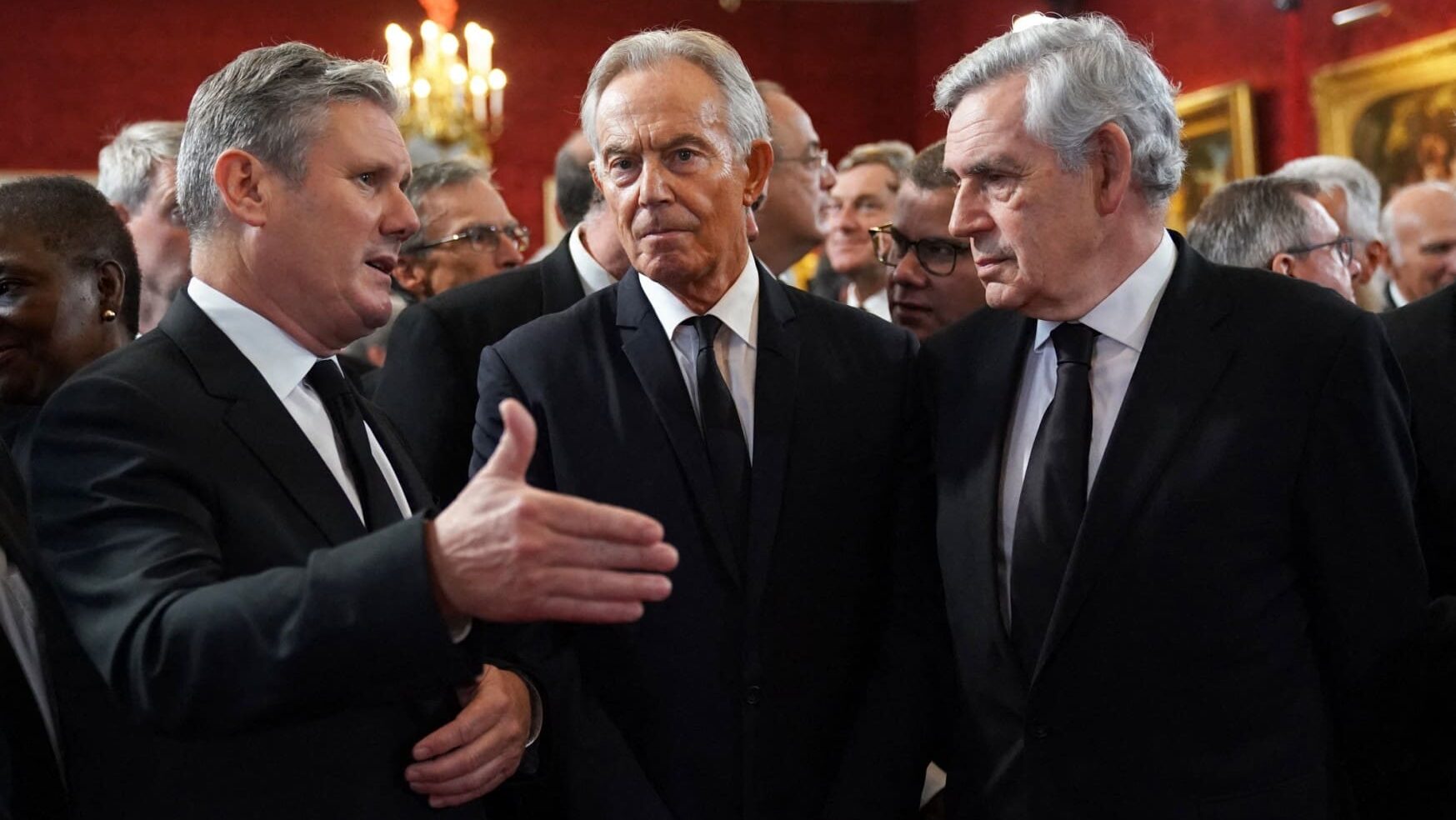
(From L) Britain’s Labour leader Sir Keir Starmer, Britain’s former Prime Ministers Tony Blair and Gordon Brown speak together ahead of a meeting of the Accession Council inside St James’s Palace in London on September 10, 2022, to proclaim King Charles III as the new King.
Photo: Kirsty O’Connor / POOL / AFP
Under former Labour Prime Minister Tony Blair, the power to set interest rates—one of the most important aspects of economic policy—was stripped from government and handed to the independent (and unelected) Bank of England. Historian David Starkey has described this as part of a deliberate and “sustained campaign to remove power from Parliament”—that is to say, “from the people.”
The new Labour government, led by Sir Keir Starmer, is working hard to keep this campaign alive. It told the country as much ahead of the July 4th election, but few in the media—and even fewer within the Conservative Party—bothered to listen.
We have reported at length on the launching of plans to shift tranches of as-yet-undefined powers out of Parliament to local administrations, situated mostly in left-leaning metropolitan areas. The intention of this “devolution revolution” is not, as Labour claims, to put powers “into the hands of local people.” Rather, Starmer’s team is working to make it more difficult for future conservative governments to effect change—in other words, to ensure the Left is in power even when it is not in office.
"Sleepy" and directionless?
— Michael Curzon (@MichaelCurzon_) July 10, 2024
No – Starmer is wasting no time when it comes to tearing up the British constitution—potentially irreversibly.
Me in @EuroConOfficial.
1/https://t.co/XWDLzjSRJm
Now, Starmer’s chancellor, Rachel Reeves, has drawn up a “Budget Responsibility Bill,” announced in the King’s Speech, designed to hand significant fiscal powers from Parliament to the unelected Office for Budget Responsibility (OBR).
If the bill passes, which it likely will, all future governments will have to request that the OBR present an analysis of “any single major tax and spending announcement, or series of announcements over the course of a single financial year, which make permanent tax or spending commitments worth more than one percent of the UK’s GDP.” Reeves calls this the “fiscal lock,” since the body would hold the power to produce reports on government tax or spending commitments whether or not it was asked.
Macroeconomist and financial analyst Philip Pilkington described the move in layman’s terms as meaning that “elected governments must now ask permission from a non-departmental body to make decisions on spending and taxation—powers Parliament fought a Civil War for.”
Incredible. The new Chancellor has just handed the fiscal keys to the unelected OBR. Elected governments must now ask permission from a non-departmental body to make decisions on spending and taxation – powers Parliament fought a Civil War for. Britain is finished. 🇬🇧 pic.twitter.com/qPNuNb15uD
— Philip Pilkington (@philippilk) July 18, 2024
“Multipolarity” podcast co-host A.D.M. Collingwood also wrote in the Daily Sceptic that the bill is “in keeping with the long-term, little discussed policy to shift Britain from a representative democracy to a stakeholder democracy”—a policy which “raises many disturbing questions about the ability in practice of any future government to stray far from the currently accepted, mainstream economic orthodoxy.”
In a direct democracy, like Switzerland’s, much legislation is decided through referenda. By contrast, in a representative democracy, the people elect representatives to write, debate and vote on legislation in their stead.
Collingwood continues: “Stakeholder democracy is different in that it views the electorate as only one voice in the lawmaking and governing process—and not necessarily the most important.”
